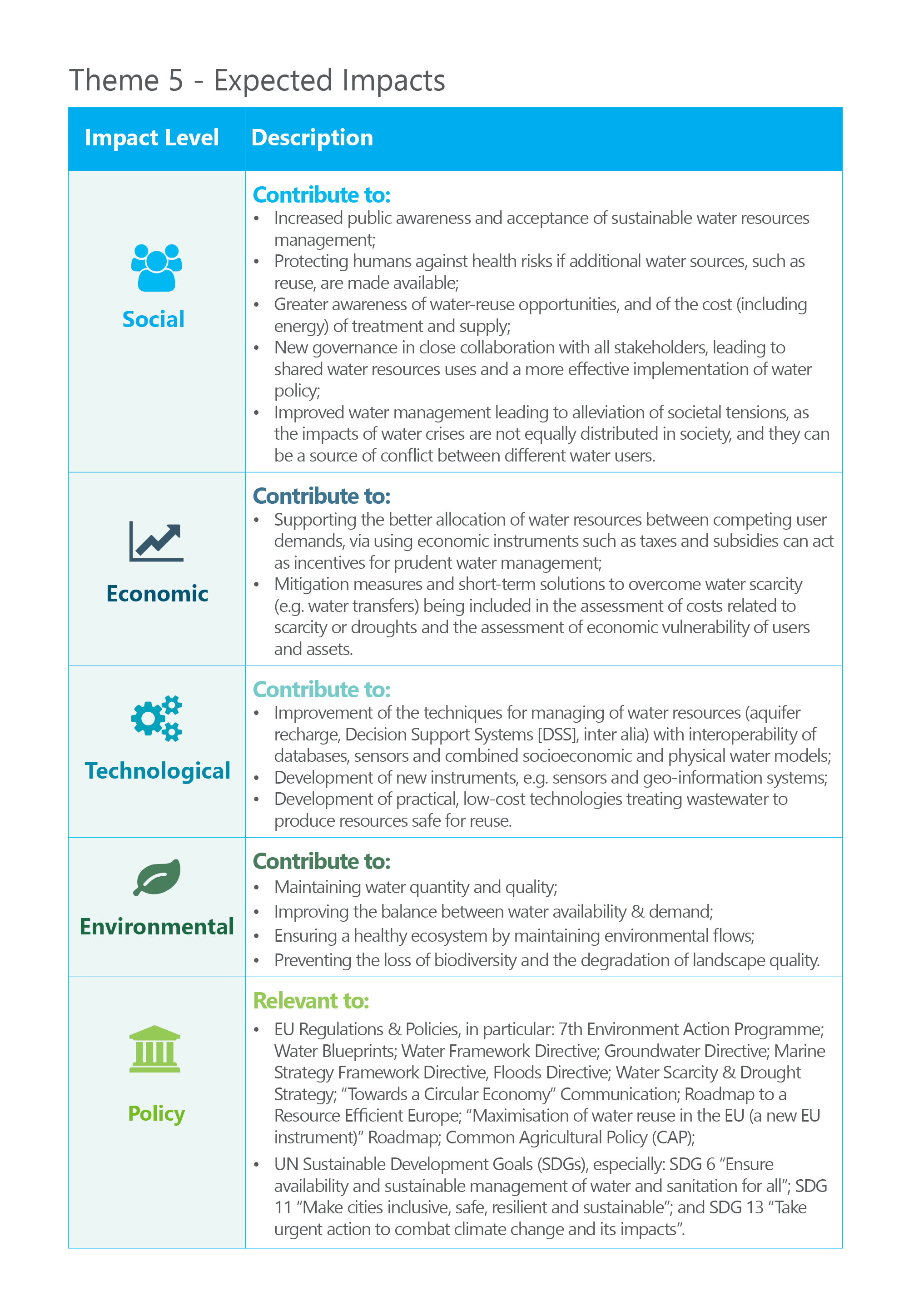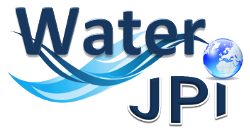Closing the Water Cycle Gap – Improving sustainable water resource management
In many regions of Europe, it may be difficult to reconcile water supply and demand both in terms of quantity and quality. The aim of the RDI actions under this theme is, therefore, to bridge the gap in “supply–demand” by enabling the sustainable management of water resources. Innovative strategies and approaches will be developed where appropriate.
Europe is not an arid continent but water scarcity has become a concern for millions of people. In quantitative terms, the availability of water for different uses is threatened by more frequent droughts. However, leakages in water supply infrastructures, greater demand on freshwater for agriculture and the lack of appropriate water-saving technologies will collectively increase pressure on limited water resources in many regions. At the same time, water consumption for public, industry and agricultural use is expected to increase by 16% by 2030. In qualitative terms, water pollution from nutrients, organic matter, heavy metals and other chemical by-products pose a serious threat to water availability.
Research needs to bring together our knowledge in ecology, social sciences, economics, geography, environmental sciences, geosciences and technology. Research is also required to better integrate water policy with other public policies (agricultural, industrial, domestic, urban, regional planning, transport, energy, biodiversity). In a context of rising tensions on water, tools for monitoring, forecasting, information and decisions are needed to anticipate and manage such tensions and avoid conflict. Required water RDI infrastructures include, for example: experimental catchments and field labs, test basis for new integrated hydrological models or for new sensors, remote observation systems, and also the related database and big data processing applications, etc.
Theme 5 is composed of:
- Subtheme 5.1. Enabling Sustainable Management of Water Resources;
- Subtheme 5.2. Strengthening Socio-economic Approaches to Water Management
To view the full description of Theme 5, please consult the Water JPI SRIA 2.0
The following activities are envisaged for the period 2017-2019:
- 2018 Water JPI joint call on closing the water cycle gap
- Ongoing monitoring of the 2018 joint call projects.
- Strategy activities relating to a common vision with with other relevant initiatives, such as the World Water Council, Climate JPI and Belmont Forum
Synergies with other initiatives and opportunities for possible strategic and co-funding activities will be explored. These would include synergies with, for example:
Updating the Water JPI SRIA
The SRIA is a living document, which will be kept updated. Emerging research needs and new knowledge gaps can be submitted for inclusion in the SRIA, following review by the Advisory Boards and approval by the Governing Board.
To submit your proposed addition to the SRIA, please complete the Online Template available here.

Related activities
In 2016, the Water JPI held its first Exploratory Workshop on Theme 5 in Dublin (Ireland). Read more
